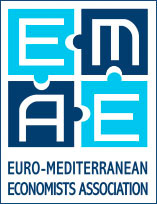A database of existing agroforestry resources (i.e. datasets, decision support tools, reports, videos, podcasts and websites) has been collated based on knowledge and experience within the ORC agroforestry team and the REFOREST project consortium (including involvement in past and present projects), recommendations from national and international colleagues, and undertaking extensive online searches. Recommendations from the project consortium were also collated in a live spreadsheet accessible via the project’s SharePoint. This database is henceforth referred to as the Knowledge Inventory (KI).
Each resource in the KI has been evaluated against the overall objective to: “Develop a hub for the synthesis and exchange of knowledge between researchers and practitioners on agroforestry design and performance.” The overall aim is to make past and current research as accessible as possible for practitioners. It has been determined that a key target audience of the project is farmers and other stakeholders who have not yet converted to agroforestry or even come across the practice. This has been taken into consideration throughout the development of the KI. As such, potential resources for inclusion in the KI have been evaluated according to the following criteria:
- It gives practical information on agroforestry design and performance and/or ecosystem delivery(particularly biodiversity and carbon)
- Farmers are likely to use it / find it useful / engage with it
- It will help address knowledge gaps
- It is applicable to Europe
- It is written /communicated in English
The development of the KI and its integration into the REFOREST stakeholder platform helps to fulfil co-creation missions and knowledge capitalisation targets:
Relevant actions associated with co-creation missions and capitalisation targets
(From the Co-creation and knowledge capitalisation strategy and AF Co-creation guidelines (MS.1 and MS.2)
- Communication of outcomes through storytelling, case studies and training programmes (4.2)
- Use the online platform as an engagement tool to provide stakeholders with access to knowledge, instruments, tools, data and results generated by the project and support the transfer of knowledge (5.1)
- Establish the knowledge inventory and Living labs network, and provide visualisation of technical data about the REFOREST Living labs as an observatory of data created by the project to support knowledge exchange and innovation (5.5)
- Enable farmers and agroforestry practitioners to access online tools, such as a graphic-user interface and FarmTree model, which quantify the performance of existing agroforestry systems in terms of their productivity, profitability and ecosystem service provision (5.4)
- Communication of the project outcomes (e.g., information on agroforestry systems design and performance; monitoring and verification capabilities; new financial agroforestry farm business model) to farmers and other value chain actors in a simplified format (5.11)
Users of the Knowledge Inventory
The target audience of the KI are farmers and other stakeholders who have not yet converted to AF or even come across the practice. The KI and REFOREST project as a whole is relevant to a wide range of additional audiences including foresters, agricultural consultants, landowners, land managers, policy makers, and food business, finance sector and other value chain actors. The audience will come from participating European countries and potentially other European countries and beyond. Whilst the stakeholder platform will be in English language, we cannot assume fluency or proficiency in English among all users. A key consideration will be to assess translation options for other languages; both from English to other languages and from other languages to English, as members of the project consortium have highlighted relevant resources that are in their native language but are not currently included in the KI.
User objectives for accessing the Knowledge Inventory
The main target audience is stakeholders who have not yet converted to agroforestry. For such stakeholders we assume non-uptake is due to having little or no knowledge of what agroforestry is and entails, not being persuaded that agroforestry is an attractive land management option, and/or not having the means to implement agroforestry. Evidence suggests that the latter will often be due to lack of knowledge and finance for implementation. The transition from non-practitioner to practitioner will often follow the learning sequence of: Finding out what agroforestry is and its benefits → exploring how agroforestry might be possible and beneficial within one’s own farm business → investigating in more detail the practicalities for implementation → sharing experience and knowledge (following successful implementation).
Various users other than farmers can support the process of take-up, in particular agricultural advisers and consultants and the agricultural research community who develop the evidence base for the benefits of agroforestry and help drive innovation in practice.
Process of new content being added to the Knowledge Inventory
It is envisaged that the KI will be added to throughout the duration of the project, taking into account further recommendations from the project consortium and any users of the KI.
Legacy of The Knowledge Inventory
The intention for the REFOREST website as a whole is that it will come under the management of EURAF when the project comes to an end.


